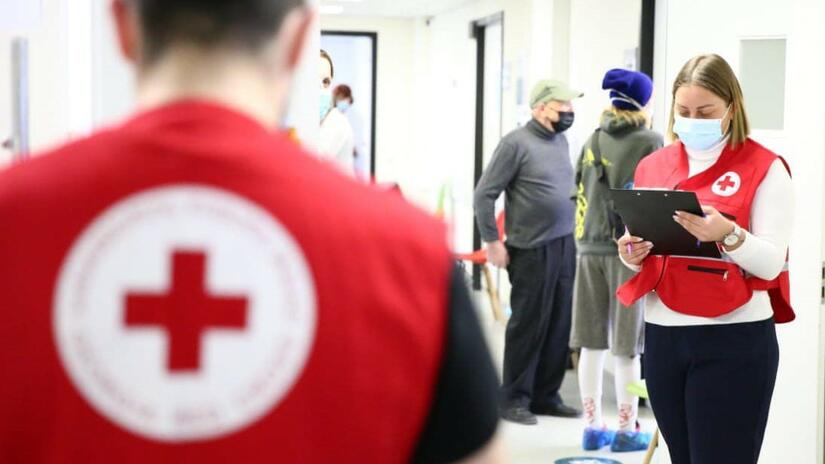Budapest/Geneva, 6 August 2021 – The International Federation of Red Cross and Red Crescent Societies (IFRC) is calling for more assistance and for vaccinations to be stepped up in Eastern Europe, South Caucasus and Central Asia, where rising COVID-19 cases and deaths triggered by the Delta variant are putting health systems under severe strain.
Europe now has one of the highest per capita rates of COVID-19 in the world and has just passed 60 million coronavirus infections. There were sharp increases throughout July – and more than one million cases reported in the last seven days alone[i].
As the majority of Eastern Europe, South Caucasus and Central Asia is still unvaccinated, medical services in some countries are becoming overwhelmed.
Birgitte Bischoff Ebbesen, IFRC’s Regional Director for Europe, said:
“Time is of the essence. With the highly contagious Delta variant sweeping across the region, millions of people in fragile or unstable settings are at heightened risk.
“With support from the IFRC, National Red Cross and Red Crescent Societies are working tirelessly to help those in need, but additional support is needed to save lives and address long term socio economic and health effects. The new wave of the pandemic is having a knock-on effect and will significantly impact the wellbeing of the most vulnerable.”
In Georgia, new infections have skyrocketed by 90 per cent in the last fortnight. Authorities had to expand the capacity of pediatric wards recently, as more children were getting sick, and the number of hotels used as clinics for people with mild symptoms is up.
In Russia, daily infections have almost tripled since the beginning of June, with 23,000 on average in the past week. In Kazakhstan, Armenia and Azerbaijan hospitalisations are on the rise. The situation is also deteriorating in Ukraine, as well as in Turkey, Montenegro and Baltic countries.
Younger generations, who often come last in vaccination campaigns, are being increasingly affected by COVID-19 in the region. This is adding pressure on health systems, as many need to be hospitalised, and can negatively impact other people around them too.
Ebbesen highlighted that vaccination is the key to curb the spread of COVID-19, together with maintaining crucial preventive measures such as mask wearing, hand washing, physical distancing and meeting outdoors or in well ventilated spaces.
However, there is a widening gap across Europe: in the richest countries, 60 per cent of people had received at least one dose of the vaccine as of 27 July, as opposed to less than 10 per cent in the lowest income countries in Eastern Europe, South Caucasus and Central Asia.
“Vaccination, not vaccines, saves lives. Donors, governments and civil society, we must all do our part so that vaccines get into the arms of those who need them most.
“But this depends largely on the availability of doses and people’s willingness to get immunised. It is essential to collectively step up our assistance so that everyone has access to vaccination and nobody hesitates whether to get a jab or not,” stressed Ebbesen.
Worryingly, as holiday travel and easing of lockdowns further the risk of COVID-19 spreading, vital operational funds to support people in need are running out.
“We are concerned about not being able to meet the growing needs, particularly as the socio-economic crisis deepens. Not even 60 per cent of IFRC’s COVID-19 Emergency Appeal is covered, which limits our capacity to provide basic humanitarian aid,” warned Ebbesen.
[i] https://covid19.who.int/table
For more information, please contact:
In Budapest:
- Ainhoa Larrea, +36 705 070 131, [email protected]
- Corinne Ambler, +36 704 306 506, [email protected]
In Geneva:
- Teresa Goncalves, +44 7891 857 056, [email protected]

